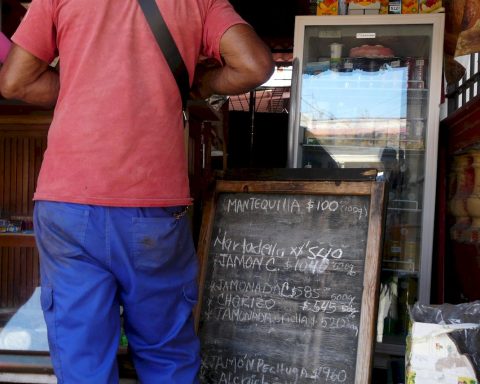The Federal Supreme Court (STF) unanimously confirmed, today (23), that the police can adopt measures to remove aggressors from the family life of women victims of domestic violence.
The Supreme Court judged a lawsuit filed by the Association of Brazilian Magistrates (AMB). The entity questioned the constitutionality of the Law 13,827/2019which included in Maria da Penha Law the possibility of sheriffs and police to keep the aggressor away from living with the woman. In the case of aggression, the police are already supported by the Constitution to enter the residence and carry out the arrest because it is flagrant.
By law, in the event of a risk to the physical integrity of the woman or her dependents, the police chief may enter the house and remove the aggressor, but only when the municipality is not the seat of a district. A police officer can also carry out the measure when there is no delegate available in the municipality at the time of the complaint.
The law also defined that, after the aggressor is removed, the magistrate responsible for the city must be notified within 24 hours to decide on the maintenance of the measure.
During the trial, lawyer Alberto Pavie Ribeiro, representing the AMB, argued that the Constitution ensured that the home is inviolable, and can only be accessed in flagrante delicto, disaster, or judicial authorization.
“It is not possible to consider the possibility of a police officer or delegate to penetrate the home, domicile or place of coexistence without a court order to remove someone from the environment and still keep him away from his freedom”, he argued.
The rapporteur, Minister Alexandre de Moraes, disagreed with AMB’s statements and voted in favor of the constitutionality of the law. Moraes said that other countries also gave powers to the police authority to adopt removal measures. The minister mentioned that 66% of femicide cases in the country occur in the victim’s home.
“It is the police authority that arrives at the residence. If it is not a case of immediate arrest, if the aggression occurred before or is about to occur, the police authority will not return to the police station while the aggressor remains with the victim,” he said.
The ministers André Mendonça, Nunes Marques, Edson Fachin, Luís Roberto Barroso, Rosa Weber, Dias Toffoli, Ricardo Lewandowski, Gilmar Mendes and the President of the Court, Luiz Fux, voted in the same direction.
Minister Cármen Lúcia said when validating the law that the police acted in the face of the lack of judges in the country’s districts. “When a woman asks for help, if there is no removal, and the aggressor realizes that there was this request on her part, the tendency is for him to remain and intensify the aggression until it reaches femicide”.
AGU and PGR
Union Advocate General Bruno Bianco defended the legality of the legislation and said the changes were made to protect women. According to Bianco, the measure should only be used in the event of a lack of a judge on duty in the district, and communication to the magistrate within 24 hours is mandatory.
“It would not be reasonable to require the victim to look for the judicial authority in another municipality, in another region, and wait for the approval of a court order to remove the aggressor”, he said.
The Attorney General of the Republic, Augusto Aras, pointed out that the purpose of Congress when approving the law was to expand protection for women and punish aggressors, but said that the amendment is unconstitutional. According to Aras, the removal is a precautionary measure that can only be authorized by the courts.
“It does not seem to me that the Judiciary has been absent or untimely with regard to the appreciation of urgent protective measures. The data point to the opposite”, he argued.

















